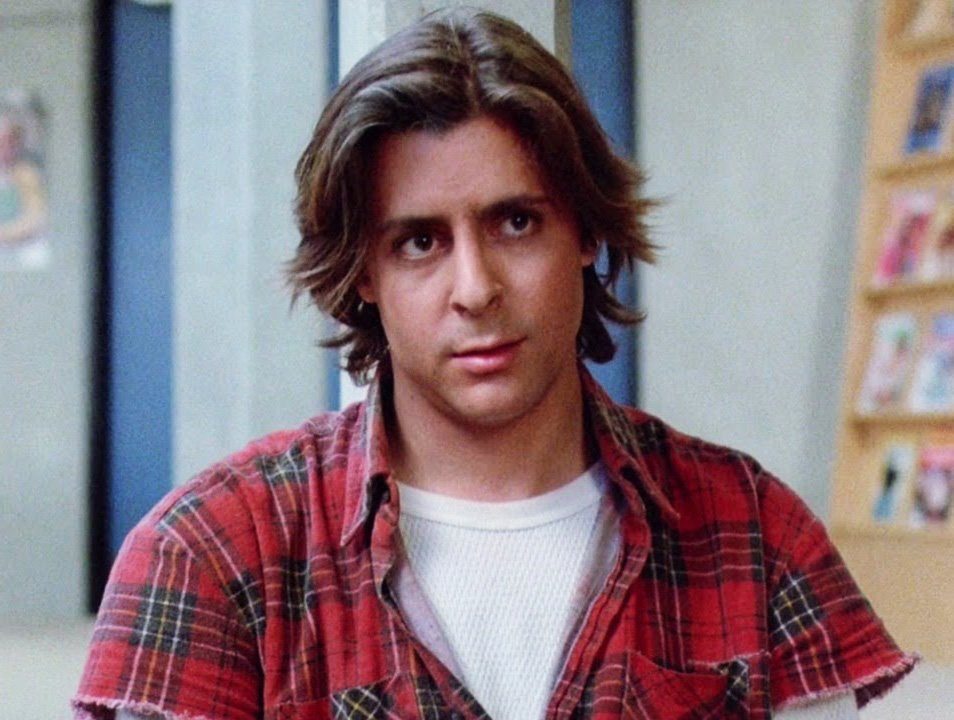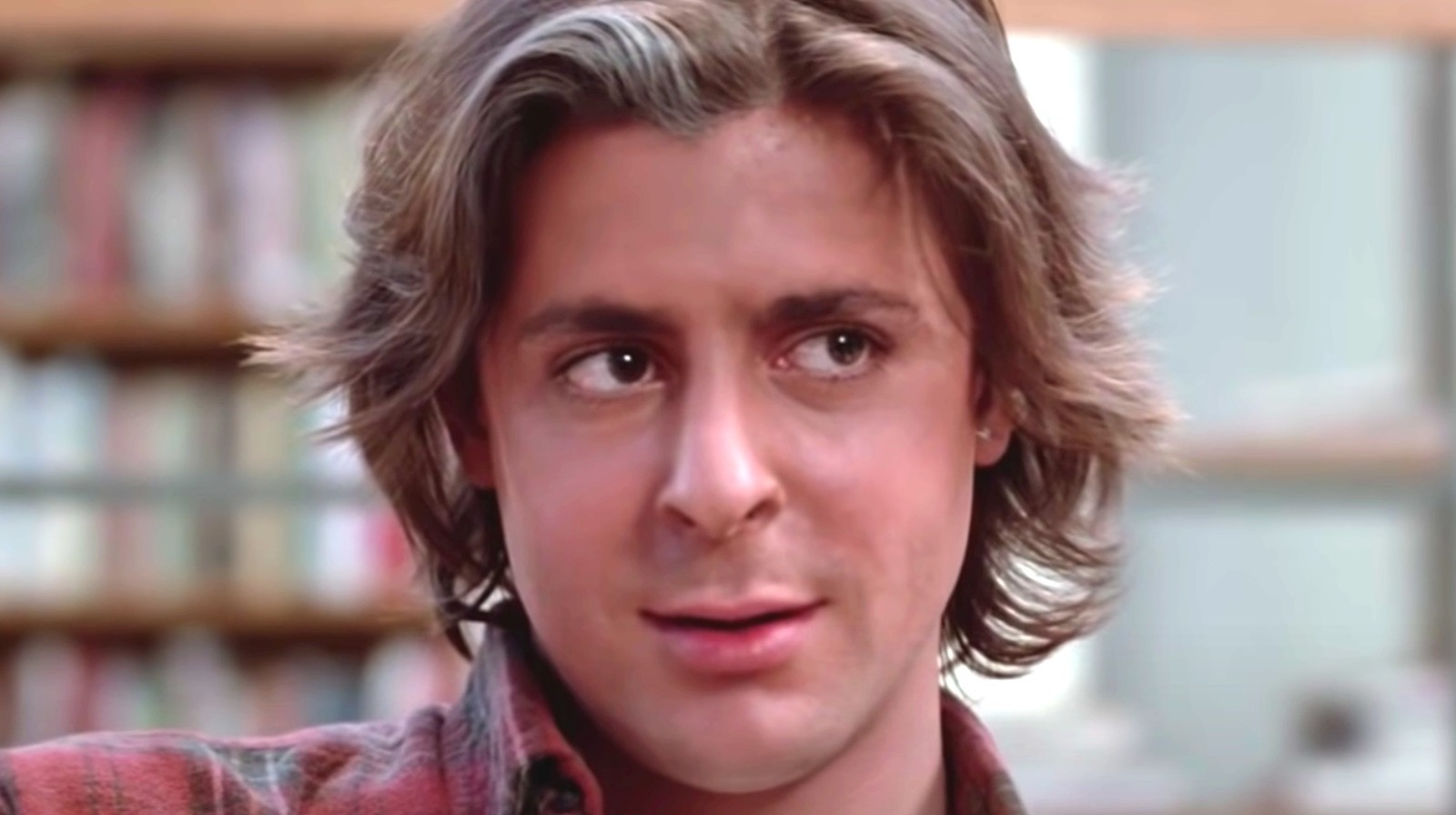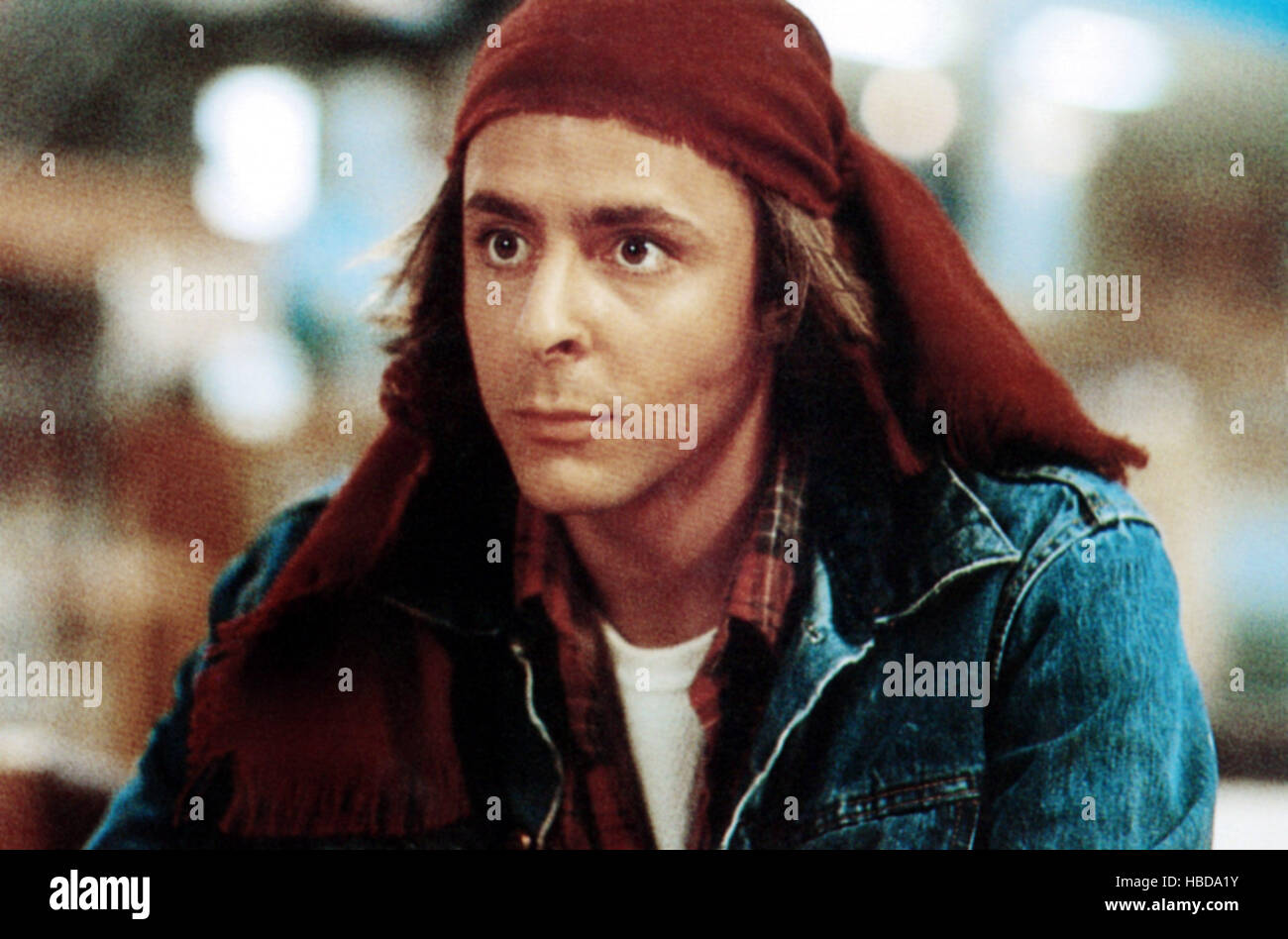AI-Generated Content
This article has been created using advanced AI technology to provide you with informative and engaging content.
AI-Curated Resources:
The image of Judd Nelson, leaning back with a cigarette, a fist raised in defiance, is, you know, etched into the minds of so many who grew up watching movies in the 1980s. His portrayal of John Bender in the classic film, The Breakfast Club, truly became a defining moment for a whole generation. It showed a side of teen life that felt very real, a kind of raw honesty that audiences just connected with, and it made Nelson a face people would remember for a very long time.
That film, as a matter of fact, gathered a group of seemingly different high school students in a Saturday detention, forcing them to spend time together. While each character brought something special to the screen, it was, perhaps, Nelson's performance as the tough, yet surprisingly vulnerable, outsider that really captured a lot of attention. He managed to make a character who could be a little bit difficult to like, someone you actually ended up feeling for, which is pretty impressive.
His work in that particular movie helped solidify its standing as more than just a teen flick; it became a piece of cinema that spoke to deeper feelings about identity and belonging. The way Nelson brought Bender to life, with all his sharp edges and hidden hurts, definitely played a big part in why the film still feels so relevant to people, even today.
- Kenya Moore Net Worth
- Nba Players That Are Jehovah Witnesses
- Phone Numbers Creepy
- Matt Kaplan Net Worth
- How Tall Are The Tren Twins
Table of Contents
- The Person Behind Bender - Judd Nelson's Early Life
- What Made John Bender So Memorable in The Breakfast Club?
- How Did Judd Nelson Prepare for The Breakfast Club Role?
- Beyond Detention - The Lasting Impact of The Breakfast Club
- Why Does The Breakfast Club Still Connect with Audiences?
- Was Judd Nelson's Performance in The Breakfast Club a Turning Point?
The Person Behind Bender - Judd Nelson's Early Life
Judd Nelson, the actor who gave us the unforgettable John Bender, came into the world in Portland, Maine. He was born in 1959, and his family had, you know, some connections to public service. His mother was a politician, and his father was a lawyer and a member of the state legislature. This background, perhaps, gave him a unique perspective on the world, one that might have, in a way, helped him understand different kinds of people, even those who felt like outsiders. He went to St. Paul's School, a preparatory school, and then later attended Haverford College. He also spent some time at the University of Oregon. It was during these years that his interest in acting began to really take hold, leading him to pursue a career in the performing arts. He moved to New York City to study acting, aiming to make a name for himself in a field that, as we know, can be very competitive.
Personal Details - Judd Nelson
Here are some basic facts about Judd Nelson:
| Full Name | Judd Asher Nelson |
| Date of Birth | November 28, 1959 |
| Place of Birth | Portland, Maine, U.S. |
| Occupation | Actor, Writer |
| Years Active | 1981–present |
What Made John Bender So Memorable in The Breakfast Club?
John Bender, the character Judd Nelson brought to life in The Breakfast Club, is, in some respects, the heart of the film's conflict and its surprising emotional depth. He's the rebel, the one who challenges authority, and the one who seems to enjoy getting under everyone's skin. Yet, underneath that tough exterior, there's a vulnerability, a hurt that, you know, makes him relatable. His memorable moments are often when he pushes back against Principal Vernon, delivering sharp, sarcastic lines that perfectly capture the frustration many young people feel with the adult world. He acts out, but it's clear that his actions are, more or less, a shield, a way to keep people from seeing the pain he carries from his home life.
- Colt Mccoy Career Earnings
- Spiderman Sophie Rains Video Adventure Unveiled
- Why Is Police Called 12
- Swatchseries.bitbucket.io
Nelson's performance made Bender more than just a stereotype. He gave him layers, showing the audience that the "bad boy" archetype could also be intelligent, observant, and, yes, even a little bit scared. The way he could switch from being completely obnoxious to showing a moment of quiet reflection was, quite frankly, what made the character so compelling. It was a performance that, you know, resonated because it felt honest about the struggles of being a teenager, trying to figure out where you fit in, and how to deal with the expectations and judgments of others. His memorable lines and actions are still quoted today, which really says something about the impact he had.
The Enduring Appeal of Judd Nelson Breakfast Club
The continued popularity of John Bender, and by extension, the whole Judd Nelson Breakfast Club experience, stems from a very simple truth: people, especially young people, often feel misunderstood. Bender, with his defiant attitude and his underlying sensitivity, became a symbol for those feelings. He was the kid who didn't fit neatly into any box, who questioned everything, and who, at his core, just wanted to be seen for who he really was, not for the label society or his parents tried to stick on him. This is a pretty universal sentiment, and it's why the character still connects with new generations.
His interactions with the other characters, particularly Claire Standish, played by Molly Ringwald, showcased the kind of unlikely connections that can form when people are forced to drop their guards. The tension and eventual, kind of, truce between them were a big part of the film's appeal. It showed that even people from very different social groups could find common ground, could see past their initial impressions, and, perhaps, even learn to care about each other. The lasting appeal of Judd Nelson Breakfast Club is, in a way, tied to this message of looking beyond the surface and finding shared humanity.
How Did Judd Nelson Prepare for The Breakfast Club Role?
Preparing for a character like John Bender, who has so many different sides, must have been a really interesting process for Judd Nelson. It's often said that he really immersed himself in the role, staying in character even when the cameras weren't rolling. This kind of dedication is, you know, something actors sometimes do to fully understand the person they are playing. He reportedly spent time, perhaps, observing real high school students, trying to capture the way they talked, moved, and interacted. This kind of research helps bring a sense of authenticity to the performance, making the character feel more like a real person and less like a caricature.
There are stories, too, about how Nelson's intense approach to Bender sometimes created, shall we say, a bit of tension on set, particularly with director John Hughes. This kind of creative friction can, in some cases, actually lead to better performances, as actors and directors push each other to explore the character more deeply. It shows that Nelson was, basically, committed to making Bender as believable and complex as possible, even if it meant being a little bit challenging at times. His commitment to the role, you know, really paid off, resulting in a portrayal that felt raw and genuine, capturing the essence of a troubled teenager.
The way he delivered his lines, with that signature sneer and the quick wit, wasn't just acting; it felt like he truly understood the mindset of someone who felt constantly judged and misunderstood. This depth of preparation is, you know, what helps an actor transform into a character, making them feel like a living, breathing individual rather than just words on a page. His work in the film is a testament to the effort he put into, you know, getting inside Bender's head and heart.
Beyond Detention - The Lasting Impact of The Breakfast Club
The Breakfast Club, as a whole, left a pretty significant mark on popular culture. It moved beyond the typical teen movie tropes of the time, offering a more thoughtful look at the pressures and anxieties of adolescence. The film's setting, a simple school library during a Saturday detention, forced the characters to confront each other and, more importantly, themselves. This stripped-down approach allowed the audience to really focus on the conversations and the slow unveiling of each character's inner life. It showed that, you know, no matter what social group you belonged to, everyone had their own struggles and insecurities.
The movie's lasting impact comes from its message of acceptance and the idea that labels don't define a person. It encouraged viewers to look past the surface, to understand that the popular girl, the jock, the brain, the recluse, and the rebel were all, in a way, just trying to figure things out. This kind of message resonated deeply with audiences then, and it continues to do so now, because the feelings of not belonging or being misunderstood are, you know, pretty timeless. The film became a cultural touchstone, often referenced in other movies, TV shows, and even music.
The Cultural Mark of Judd Nelson Breakfast Club
When we talk about the cultural mark left by the Judd Nelson Breakfast Club combination, we're really talking about how one character, so well-played, can become an icon. John Bender's defiance, his particular style, and his memorable lines became part of the common language for a generation. People would, you know, quote his dialogue, imitate his walk, and even try to adopt some of his rebellious spirit. This kind of influence shows just how deeply a fictional character can connect with real people, especially when that character speaks to something authentic in their own experiences.
The film, and Nelson's role within it, helped shape how teen movies were made and perceived for years afterward. It proved that films about young people could be more than just light entertainment; they could, in fact, explore deeper themes and serious issues. The Judd Nelson Breakfast Club pairing is, you know, a prime example of how a strong performance in a well-written film can create something that stands the test of time, continuing to be relevant and discussed decades later. It’s a pretty powerful example of cinema’s ability to reflect and influence culture.
Why Does The Breakfast Club Still Connect with Audiences?
The reason The Breakfast Club continues to connect with audiences, even today, is pretty straightforward: it speaks to universal human experiences. The core idea of five different teenagers, each carrying their own burdens and facing pressures from home and school, is something that, you know, almost everyone can relate to at some point in their lives. The film explores themes like identity, peer pressure, family expectations, and the struggle to be true to oneself. These aren't just issues for teenagers; they're feelings that, in a way, stay with us throughout life.
The movie's dialogue is also a big part of its lasting appeal. It's sharp, honest, and, you know, often very funny, but it also has moments of surprising emotional depth. The characters talk about their fears, their hopes, and their frustrations in a way that feels very real, almost like you're eavesdropping on a genuine conversation. This kind of authenticity makes the film feel timeless. It doesn't rely on overly specific trends or fads from the 80s; instead, it focuses on the internal lives of its characters, which are, you know, always relevant.
Moreover, the film's portrayal of adults, particularly Principal Vernon, highlights the generational gap and the challenges of communication between young people and older figures. This dynamic is, you know, something that many viewers, both young and old, can recognize from their own lives. The film suggests that, perhaps, if people just took the time to listen to each other, a lot of misunderstandings could be avoided. This simple, yet profound, message is a big reason why the film still finds new fans and continues to be watched and discussed.
Was Judd Nelson's Performance in The Breakfast Club a Turning Point?
For Judd Nelson, his role as John Bender in The Breakfast Club was, in many ways, a significant moment in his acting career. It was the role that, you know, really put him on the map and made him a recognizable face for a whole generation of moviegoers. Before this film, he had appeared in other projects, but none had quite the same cultural impact or gave him such a memorable character to play. The film's success and the widespread recognition of his performance opened up new opportunities for him in Hollywood.
His portrayal of Bender was so powerful that, for a long time, it was the role he was most associated with. This can be both a blessing and a challenge for an actor, as it means they've created something truly iconic, but it can also make it difficult to be seen in other types of roles. However, the sheer impact of his work in The Breakfast Club cannot be overstated. It showcased his ability to bring a complex, layered character to life, and it proved that he had a talent for capturing the raw emotions of youth. It was, arguably, the role that defined a period of his career and left a lasting impression on film history.
Even decades later, when people talk about The Breakfast Club, Judd Nelson's performance as John Bender is one of the first things that comes to mind. This kind of lasting recognition is, you know, a clear sign that his work in that film was, indeed, a turning point, not just for him personally, but for how audiences would remember him as an actor. It cemented his place in the annals of classic 80s cinema and, perhaps, even beyond.
The article explored Judd Nelson's background, his memorable portrayal of John Bender in The Breakfast Club, and the reasons behind the character's enduring appeal. It also touched upon Nelson's preparation for the role and the lasting cultural impact of the film, highlighting why it continues to connect with audiences.
AI-Enhanced Visual Content


